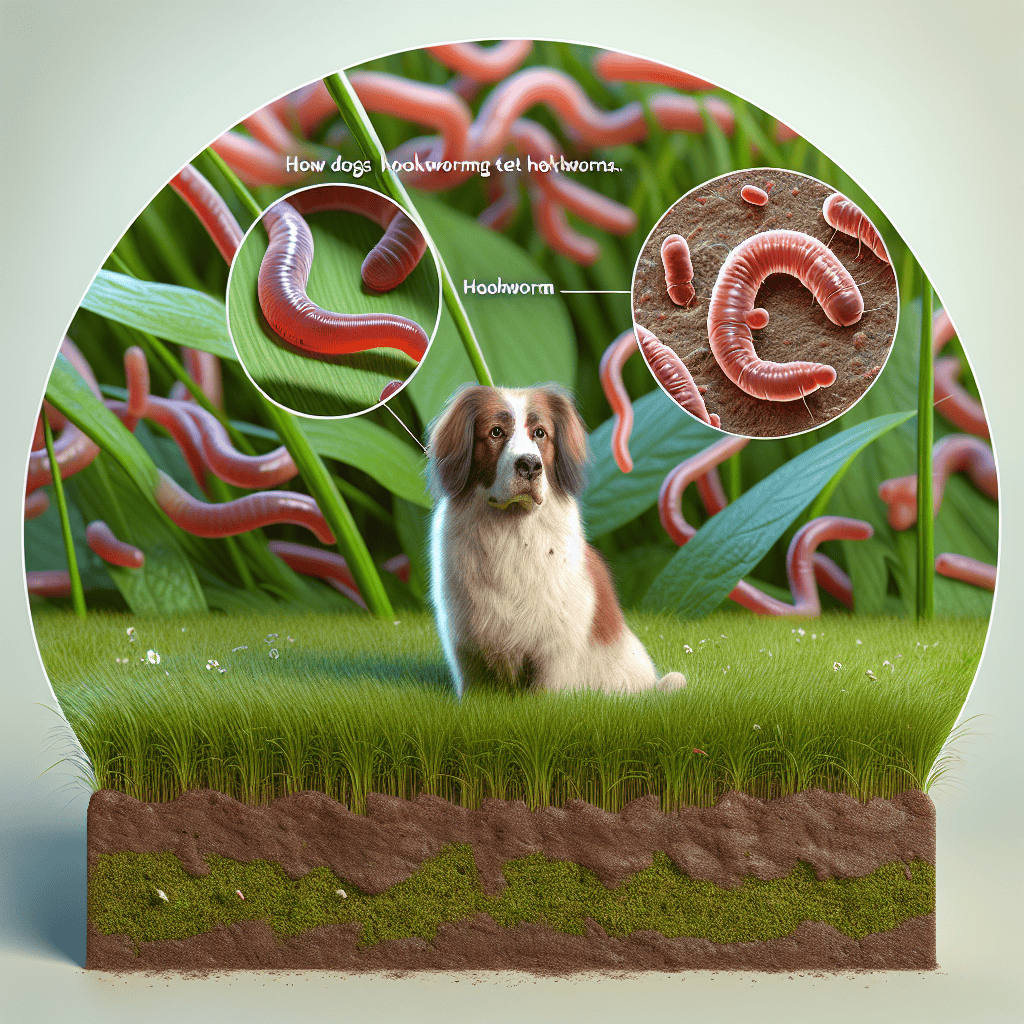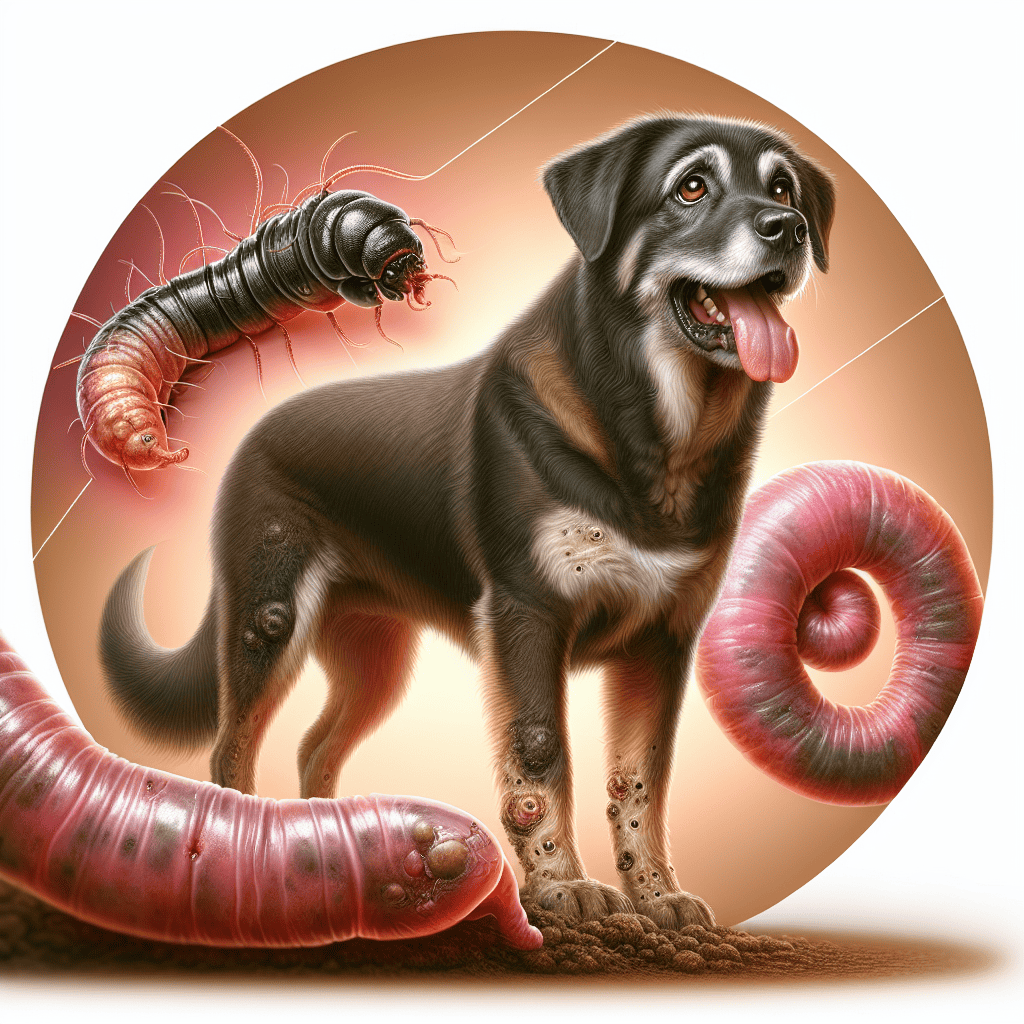Understanding Colitis in Dogs
Colitis in dogs is a condition characterized by inflammation of the colon, which is the large intestine. It can be a painful and uncomfortable condition for our furry friends. In this section, we will provide a definition and overview of colitis in dogs, as well as highlight the symptoms to watch for.
Definition and Overview
Colitis is the inflammation of the colon, which is responsible for absorbing water and electrolytes from the digestive waste. When the colon becomes inflamed, it can disrupt its normal functions and lead to various gastrointestinal symptoms.
Causes of colitis in dogs can vary, and it is often a symptom of an underlying condition. Common causes include stress, infections, parasites, trauma, allergic reactions, and primary inflammatory bowel disease (Harmony Animal Hospital). Additionally, dietary factors, such as dietary indiscretion or consuming contaminated food, can also contribute to the development of colitis in dogs (Pawlicy).
Symptoms to Watch For
Identifying the symptoms of colitis in dogs is essential for timely intervention and treatment. The following are common symptoms to watch for:
-
Diarrhea: Dogs with colitis may experience diarrhea, which can range from loose stools to more severe cases with blood or mucus present. It is important to monitor the consistency, frequency, and appearance of your dog’s bowel movements.
-
Straining to Defecate: Dogs with colitis may strain or have difficulty during the defecation process. This can be a result of inflammation and discomfort in the colon.
-
Increased Frequency of Bowel Movements: Colitis can cause an increase in the frequency of bowel movements. If you notice your dog needing to go outside more frequently or having accidents in the house, it could be a sign of colitis.
-
Abdominal Discomfort: Dogs with colitis may show signs of abdominal discomfort, such as restlessness, pacing, or a hunched posture.
-
Loss of Appetite: Colitis can cause a decrease in appetite or even complete loss of appetite in some dogs. If your dog shows a sudden disinterest in food, it may be a cause for concern.
-
Weight Loss: Chronic colitis can lead to weight loss in dogs, as the inflammation and disruption in the colon can affect nutrient absorption.
If you notice any of these symptoms in your dog, it is important to consult with a veterinarian for proper diagnosis and treatment. They will be able to perform a thorough examination and may recommend diagnostic tests to determine the underlying cause of the colitis.
By understanding the definition, overview, and symptoms of colitis in dogs, you can be better equipped to recognize the signs and seek appropriate veterinary care. In the following sections, we will explore the causes, diagnosis, treatment options, preventive measures, and management strategies for colitis in dogs.
Causes of Colitis in Dogs
Colitis in dogs can have several underlying causes. Understanding these causes is essential for effectively managing the condition in our furry friends. The main causes of colitis in dogs include stress, infections and parasites, and dietary factors.
Stress as a Trigger
One of the most common causes of colitis in dogs is stress. Dogs can experience stress in various situations, such as a visit to the vet, bad weather, visitors at home, or moving house. Stress can put added pressure on a dog’s immune system, making them more susceptible to a colitis flare-up. This can lead to inflammation in the gut and trigger colitis, especially in dogs with sensitive stomachs (Purina UK).
Infections and Parasites
Infections and parasites can also contribute to the development of colitis in dogs. Common infections that can cause colitis include Salmonella, Clostridium, and E. coli (VCA Hospitals). Parasitic infections like Giardia, Cryptosporidium, and whipworms can also lead to colitis (Pawlicy). These infections and parasites can cause inflammation in the large intestine, resulting in colitis symptoms.
Dietary Factors
Dietary factors play a significant role in the development of colitis in dogs. Dietary indiscretion, such as eating new treats or consuming bad food, can trigger an episode of colitis (Pawlicy). Dogs with sensitive stomachs may be more prone to colitis when exposed to dietary changes. Additionally, long-term issues like irritable bowel syndrome and ingesting unusual substances can also contribute to the development of colitis in dogs (Purina UK).
Understanding the causes of colitis in dogs is vital for effective management and prevention. By identifying and addressing these underlying factors, we can help alleviate the symptoms and improve our furry companions’ quality of life. If you suspect your dog has colitis, it’s important to consult with a veterinarian for proper diagnosis and treatment. For more information on colitis in dogs, read our article on colitis in puppies.
Diagnosing Colitis in Dogs
When it comes to diagnosing colitis in dogs, a thorough veterinary examination is crucial. Vets rely on a combination of clinical assessment and diagnostic tests to confirm the presence of colitis and identify the underlying cause.
Veterinary Examination
During a veterinary examination, the vet will take a detailed history of your dog’s symptoms and conduct a physical examination. They will ask about the duration, frequency, and severity of symptoms, such as diarrhea, blood in the stool, and increased urgency to defecate. The vet will also assess your dog’s overall health and look for any signs of dehydration or weight loss.
Diagnostic Tests
To accurately diagnose colitis and identify the underlying cause, veterinarians may recommend several diagnostic tests. These tests may include:
-
Stool Sample Analysis: A stool sample analysis can help identify the presence of worms, parasites, or bacteria that may be contributing to colitis. It can also rule out other conditions that may cause similar symptoms.
-
Blood Work: Blood tests can provide valuable information about your dog’s overall health and help rule out underlying systemic conditions that may be causing or contributing to colitis.
-
Radiographs (X-rays) and Abdominal Ultrasounds: X-rays and ultrasounds may be used to visualize the digestive tract and identify any foreign bodies, obstructions, or abnormalities that could be causing colitis.
-
Colonoscopy and Biopsy: In some cases, a colonoscopy may be performed to directly visualize the colon and collect tissue samples for biopsy. This procedure can help identify specific inflammatory conditions and rule out other gastrointestinal diseases.
The specific tests recommended may vary depending on the severity of symptoms and the veterinarian’s clinical judgment. It’s important to follow your vet’s guidance and provide any requested samples or information to aid in the diagnostic process.
Once a diagnosis of colitis is confirmed, the vet can develop an appropriate treatment plan tailored to your dog’s needs. Treatment options may include dietary changes, medication, and therapies to alleviate symptoms and address the underlying cause. For information on treatment options, refer to the section on Treatment Options for Colitis.
By working closely with your veterinarian and following their recommendations, you can help ensure an accurate diagnosis and provide your dog with the necessary care to manage colitis effectively. Remember to seek veterinary guidance whenever you notice any concerning symptoms in your dog to ensure their well-being and comfort.
Treatment Options for Colitis
When it comes to treating colitis in dogs, there are various options available. The treatment approach depends on the severity of the condition and the underlying cause. Here, we will explore two primary treatment options: dietary changes and medication/therapies.
Dietary Changes
Dietary modifications play a crucial role in managing colitis in dogs. In many cases, a veterinarian may recommend a plain diet consisting of easily digestible foods, such as boiled chicken and rice. This bland diet helps to reduce irritation in the digestive system and allows the intestines to heal.
It’s important to gradually transition your dog to the new diet to prevent any further digestive upset. Monitor your dog’s response to the new diet and make adjustments as necessary. In some cases, your veterinarian may suggest a specialized prescription diet tailored to dogs with colitis. For more information on diet recommendations, check out our article on diet for dogs with colitis.
Medication and Therapies
Medication and therapies can be utilized to manage the symptoms of colitis and address the underlying causes. Here are a few commonly used options:
-
Anti-inflammatory Medication: Nonsteroidal anti-inflammatory drugs (NSAIDs) or corticosteroids may be prescribed to reduce inflammation in the colon and alleviate symptoms. These medications should be used under veterinary guidance due to potential side effects.
-
Probiotics: Probiotics are beneficial bacteria that can help restore the balance of gut flora and improve overall gut health. They may be recommended to promote a healthy intestinal environment and reduce inflammation.
-
Parasite Treatment: If colitis is caused by parasites like hookworms, giardia, or coccidia, appropriate deworming or anti-parasitic medications will be prescribed to eliminate the parasites.
-
Stress Management: Stress can trigger or exacerbate colitis in dogs. Managing stress through behavioral modifications, environmental enrichment, and relaxation techniques can be beneficial. Creating a calm and stable environment for your dog can help reduce the frequency and severity of colitis episodes.
It’s important to consult with a veterinarian to determine the most suitable treatment options for your dog’s specific condition. They will consider the underlying cause, severity of symptoms, and your dog’s overall health before recommending an appropriate treatment plan.
Treating colitis requires a comprehensive approach that may involve a combination of dietary changes, medications, and therapies. Regular communication with your veterinarian and following their guidance is essential to ensure the best possible outcome for your dog. For more information on chronic colitis and its management, refer to our article on chronic colitis in dogs.
Preventive Measures for Colitis
Taking preventive measures is essential to help minimize the risk of colitis in dogs. By implementing certain strategies, such as focusing on diet and nutrition and ensuring parasite prevention, dog owners can help maintain their furry friends’ gastrointestinal health.
Diet and Nutrition
Proper diet and nutrition play a crucial role in preventing and managing colitis in dogs. The following measures can be taken:
-
High-Quality Diet: Feed your dog a high-quality, balanced diet that is appropriate for their age, breed, and specific dietary needs. Consult with your veterinarian to determine the best diet for your dog, especially if they have a history of colitis. For more information on suitable diets, refer to our article on diet for dogs with colitis.
-
Avoid Dietary Indiscretion: Dogs are curious creatures and may be prone to eating unusual things. It’s important to prevent your dog from consuming trash, unfamiliar food items, or anything that could upset their digestive system. Keep a close eye on your dog during walks and outings, and discourage them from scavenging.
-
Limited Ingredient Diet: In some cases, dogs with colitis may benefit from a limited ingredient diet. These diets usually have a simplified ingredient list, which can help identify and eliminate potential trigger foods. Discuss with your veterinarian whether a limited ingredient diet is appropriate for your dog.
-
Probiotics: Probiotics are beneficial bacteria that can help support a healthy gut microbiome. Consider incorporating probiotic supplements or foods into your dog’s diet, as recommended by your veterinarian. Probiotics may help promote digestive health and reduce the risk of colitis.
Parasite Prevention
Parasitic infections can contribute to the development of colitis in dogs. Taking preventive measures against parasites is crucial. Consider the following steps:
-
Regular Veterinary Check-ups: Schedule regular veterinary check-ups for your dog, including fecal examinations. Regular fecal exams can help identify and treat any parasitic infections promptly.
-
Monthly Parasite Preventives: Administer monthly parasite preventives recommended by your veterinarian. These preventives can help protect your dog against common parasites, such as hookworms, giardia, and coccidia.
-
Vaccinations: Ensure that your dog’s vaccinations are up to date. Vaccinations can help protect against certain diseases that may cause colitis or exacerbate its symptoms.
-
Hygiene and Cleanliness: Practice good hygiene and cleanliness in your dog’s living environment. Regularly clean their bedding, food and water bowls, and living areas to reduce the risk of exposure to parasites.
-
Limit Contact with Sick Dogs: When in public places like parks or doggy daycare, be cautious about your dog’s interactions with potentially sick dogs. Limiting contact with sick dogs can help reduce the risk of transmission of infectious diseases that may lead to colitis.
By implementing these preventive measures, you can help reduce the risk of colitis in your furry companion. However, if your dog shows any symptoms of colitis, such as diarrhea, blood in the stool, or frequent bowel movements, it’s essential to consult with your veterinarian for a proper diagnosis and appropriate treatment. For more information on chronic colitis in dogs, refer to our article on chronic colitis in dogs.
Prognosis and Management
When it comes to the prognosis and management of colitis in dogs, it’s important to consider both short-term recovery and chronic colitis considerations. Understanding these aspects can help dog owners navigate the condition and provide proper care for their furry companions.
Short-Term Recovery
The prognosis for dogs diagnosed with colitis is generally excellent for a speedy recovery. In many cases, especially for stress colitis, a simple change in diet and medication to address inflammation or infection in the colon can lead to resolution of symptoms. According to VCA Hospitals, most dogs with stress colitis return to normal within three to five days.
Short-term recovery from colitis is often achieved through the following measures:
- Dietary Changes: A veterinarian may recommend a specialized diet that is easily digestible and low in fat. This can help reduce gastrointestinal irritation and promote healing of the inflamed colon.
- Medication and Therapies: Depending on the underlying cause of colitis, medications such as antibiotics, anti-inflammatory drugs, or probiotics may be prescribed to address the specific issue. These medications can help alleviate symptoms and support the healing process.
During the short-term recovery period, it is important to closely monitor your dog’s condition and follow the veterinarian’s recommendations. Providing a calm and stress-free environment can also contribute to a smoother recovery.
Chronic Colitis Considerations
Chronic colitis in dogs is defined as inflammation of the colon present for at least two weeks, leading to changes in absorption, motility, and clinically manifesting as large-bowel diarrhea in one-third of dogs (Merck Veterinary Manual). Dogs with chronic colitis may experience recurrent or ongoing symptoms, requiring long-term management.
While dogs with chronic colitis have a good short-term prognosis, relapses are common, particularly in cases where there is a genetic predisposition to colitis, such as Boxers with granulomatous colitis. Early initiation of treatment is crucial for a better chance of recovery in these cases (Pawlicy).
Managing chronic colitis often involves the following considerations:
- Long-Term Dietary Management: A carefully tailored diet, such as a prescription or hypoallergenic diet, may be recommended to manage chronic colitis. This can help reduce inflammation, improve digestion, and minimize symptoms.
- Medication and Monitoring: Depending on the severity and underlying cause of chronic colitis, long-term medication may be necessary to control symptoms and prevent flare-ups. Regular check-ups with a veterinarian are essential to monitor your dog’s condition and adjust the treatment plan as needed.
It’s important to work closely with your veterinarian to develop an individualized management plan for your dog’s chronic colitis. This may involve periodic evaluations, dietary adjustments, and ongoing medication as necessary.
By understanding both short-term recovery and chronic colitis considerations, dog owners can provide appropriate care for their pets and improve their overall quality of life. Regular veterinary visits, adherence to recommended treatments, and a supportive environment are key to managing colitis effectively.








